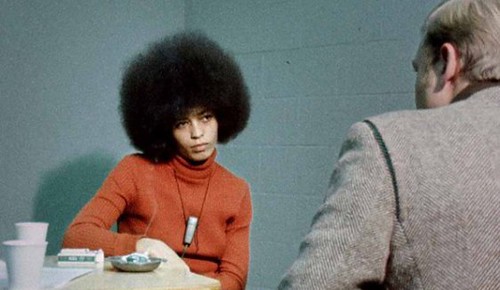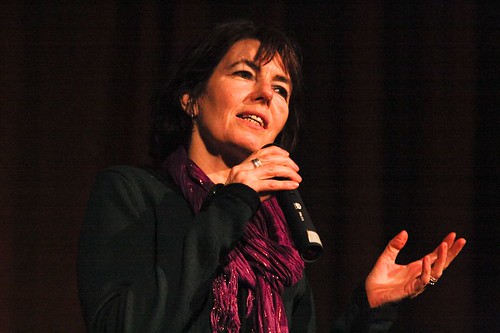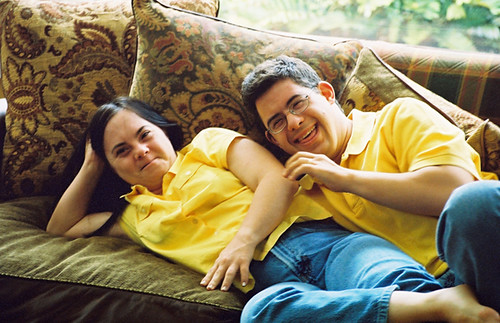
Angela Davis interviewed by Swedish Television. ( SVT)
Last week I went to another excellent screening at Cinema Politica’s home base at Concordia University, now only one of their 75 chapters on campuses across this continent and in Europe. I saw a terrific film, The Black Power Mix Tape 1967-75 which screened last year at Sundance and Hot Docs. And I had a different experience from all the other 600 people in the audience.
The Black Power Mix Tape 1967-1975 is made with archives from Swedish Television’s reports from the United States from 1967 to 1975. At the time, Sweden was a very progressive country. The Social Democrats were in power, Olof Palme was prime minister. Sweden officially opposed the war in Vietnam and supported justice for the Palestinians. Swedish television’s reporting from the U.S. was focused on poverty, the movement against the war and the emergence of the Black Power movement – to such an extent that U.S. some U.S. media spokesmen denounced the coverage as ‘anti-american.’ The reporters investigated the Black Power movement, obtaining behind-the-scenes footage with larger-than-life characters like Elridge Cleaver and Angela Davis, as well as rare footage of internal activities in the movement.
For the fist three years that these stories were broadcast, I was living in Stockholm. I was active in the mobilisations against the Vietnam war and generally involved with the student movement. Seeing the footage and hearing the voices of the Swedish reporters the other night was like a time travel experience for me, rediscovering something I experienced 45 years ago. The names of the journalists wouldn’t mean anything to people outside Sweden, but to me they were household items.
The filmmaker, Hugo Göran Olsson, made a very interesting choice – which justifies the ‘mixtape’ part of the title. He asked some current-day hip hop artists and song writers and a few other cultural activists to comment on the footage, the Black Power experience and its relevance to black people and others in the U.S. today. You don’t see them, you only hear their voices. The choice of interviewees was not obvious – he could have asked university professors or journalists – but it adds a very interesting layer to the film, bringing it up to date in a socially critical way while letting the archives remain the main attraction. Excellent !
Thank you to Sally Rylett for helping with this blog.



